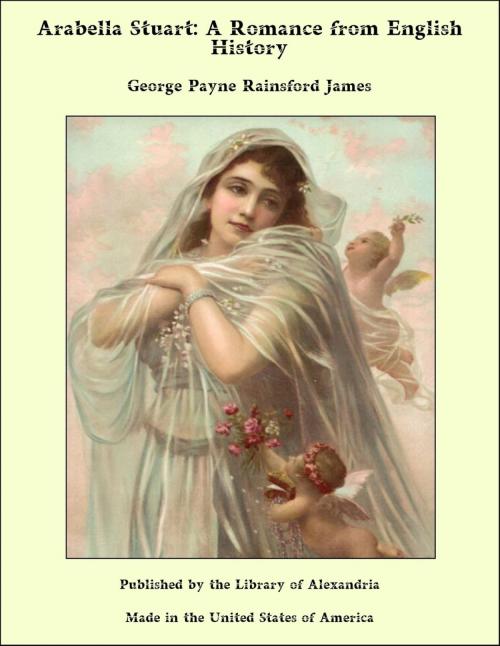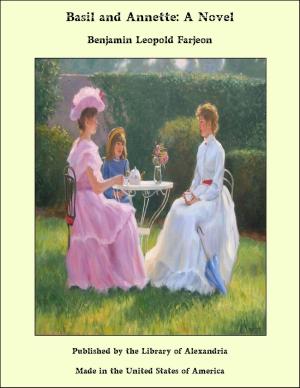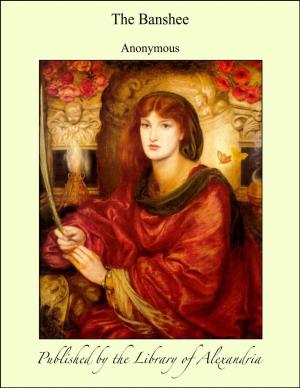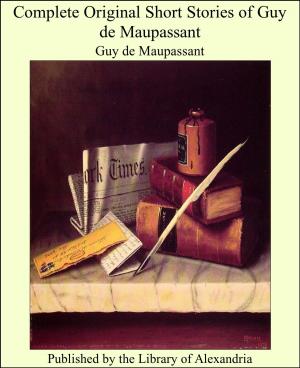Arabella Stuart: A Romance from English History
Nonfiction, Religion & Spirituality, New Age, History, Fiction & Literature| Author: | George Payne Rainsford James | ISBN: | 9781465606969 |
| Publisher: | Library of Alexandria | Publication: | March 8, 2015 |
| Imprint: | Language: | English |
| Author: | George Payne Rainsford James |
| ISBN: | 9781465606969 |
| Publisher: | Library of Alexandria |
| Publication: | March 8, 2015 |
| Imprint: | |
| Language: | English |
The eye of the traveller, however, on the London road, in tracing this stream farther up, came upon a clump of tall old trees disencumbered of all brushwood, spreading wide at the top, but ungarnished by boughs or green leaves below, and affording habitation to a multitude of busy rooks, whose inharmonious voices--when joined together in full chorus, and heard from a distance--formed a peculiar kind of melody, connecting itself with many memories in the hearts of almost every one, and rousing soft and pensive imaginations from its intimate connexion with those country scenes, and calm pleasures, amongst which must lie all man's sweetest associations. From the top of the hill on which we have placed ourselves, a number of chimney tops, somewhat quaint and fantastic in their forms, appeared to be actually rising from the very heart of the rookery; but if you stopped to let your horse drink at the stream in the bottom of the valley, and looked up its course to the left, you perceived that the house to which those chimneys belonged, lay at the distance of more than two hundred yards from the trees, and had a large garden with a long terrace, and a low wall between it and them. The mansion was of no great extent, as we have already hinted, and might belong to a gentleman of limited means, though moving in the better ranks of life; the windows were principally of that peculiar form which was first introduced under the Tudors, as the pointed arch of a preceding epoch began to bow itself down towards the straight line in which it was extinguished not long after. The whole building might have risen from the ground somewhat more than half a century before the period of which we now speak, perhaps in the reign of Mary Tudor, perhaps in that of her brother Edward; and yet I will not take upon myself to say that the bloody and ferocious monster, their father, might not have seen it as he travelled down into Cambridgeshire. The colouring, indeed, was of that soiled and sombre hue, which bespoke long acquaintance with the weather; and though originally the glowing red bricks might have shown as rubicund a face as any newly painted Dutch house at the side of a canal, they were now sobered down with age, and grey with the cankering hand of time. Although the garden was neatly kept, and somewhat prim, according to the fashion of the day, and a bowling-green just within the terrace was as trim and neatly shaved as if the scythe passed over it every morning, nevertheless about the building itself were some signs and symptoms of decay, the work of neglect, rather than of time. Instead of neat and orderly pointing, the brickwork displayed, in various places, many an unstopped joint; and though, doubtless, weather-tight within, the stone coping was here and there broken, while one or two of the chimneys, which were gathered into groups of four set angularly, displayed the want of a brick in various places, which destroyed their fair proportions, without perhaps affecting their soundness.
The eye of the traveller, however, on the London road, in tracing this stream farther up, came upon a clump of tall old trees disencumbered of all brushwood, spreading wide at the top, but ungarnished by boughs or green leaves below, and affording habitation to a multitude of busy rooks, whose inharmonious voices--when joined together in full chorus, and heard from a distance--formed a peculiar kind of melody, connecting itself with many memories in the hearts of almost every one, and rousing soft and pensive imaginations from its intimate connexion with those country scenes, and calm pleasures, amongst which must lie all man's sweetest associations. From the top of the hill on which we have placed ourselves, a number of chimney tops, somewhat quaint and fantastic in their forms, appeared to be actually rising from the very heart of the rookery; but if you stopped to let your horse drink at the stream in the bottom of the valley, and looked up its course to the left, you perceived that the house to which those chimneys belonged, lay at the distance of more than two hundred yards from the trees, and had a large garden with a long terrace, and a low wall between it and them. The mansion was of no great extent, as we have already hinted, and might belong to a gentleman of limited means, though moving in the better ranks of life; the windows were principally of that peculiar form which was first introduced under the Tudors, as the pointed arch of a preceding epoch began to bow itself down towards the straight line in which it was extinguished not long after. The whole building might have risen from the ground somewhat more than half a century before the period of which we now speak, perhaps in the reign of Mary Tudor, perhaps in that of her brother Edward; and yet I will not take upon myself to say that the bloody and ferocious monster, their father, might not have seen it as he travelled down into Cambridgeshire. The colouring, indeed, was of that soiled and sombre hue, which bespoke long acquaintance with the weather; and though originally the glowing red bricks might have shown as rubicund a face as any newly painted Dutch house at the side of a canal, they were now sobered down with age, and grey with the cankering hand of time. Although the garden was neatly kept, and somewhat prim, according to the fashion of the day, and a bowling-green just within the terrace was as trim and neatly shaved as if the scythe passed over it every morning, nevertheless about the building itself were some signs and symptoms of decay, the work of neglect, rather than of time. Instead of neat and orderly pointing, the brickwork displayed, in various places, many an unstopped joint; and though, doubtless, weather-tight within, the stone coping was here and there broken, while one or two of the chimneys, which were gathered into groups of four set angularly, displayed the want of a brick in various places, which destroyed their fair proportions, without perhaps affecting their soundness.















